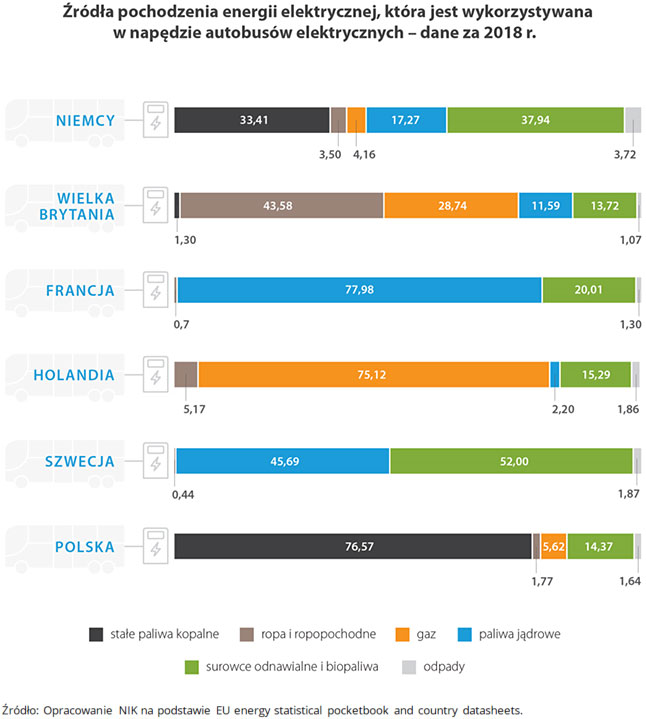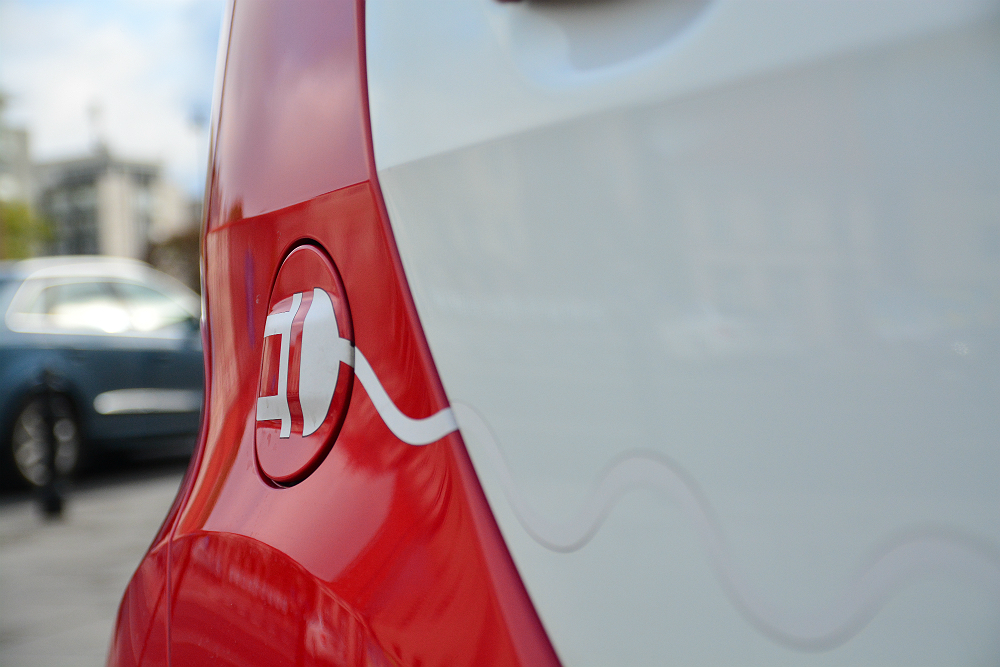Poland’s state audit body has issued a report revealing the limited progress the government has made in expanding the use of electric vehicles, highlighting poor implementation and wasted spending on a number of programmes.
In 2016, the newly elected Law and Justice (PiS) government unveiled plans to make Poland an electromobility powerhouse, including an aim to have one million electric vehicles on Polish roads by 2025.
These ambitions have already begun to be scaled back, amid low take-up of a scheme to subsidise the cost of purchasing electric vehicles and delays in plans for a Polish-made electric car.
In 2019, after only 1,324 electric cars had been registered in Poland the previous year, the government lowered its target to having 600,000 electric and hybrid vehicles by 2030. At the end of 2019, the figure stood at only 8,637.
Now a report by the Supreme Audit Office (NIK) – a body constitutionally tasked with monitoring spending and other actions by public bodies – has outlined in detail just how little progress has been made.
Poland’s electromobility plans are “still at the initial stage despite four years passing since the vision was presented”, writes NIK. They blame the government’s “selective” and “delayed” implementation of its flagship project.
“In terms of the number of electric cars and infrastructure, we are still at the tail end of Europe,” says the report.

Source: NIK
By the end of July 2020, note the auditors, there were only 13,057 electric vehicles registered in Poland. That is just 26% of the government’s goal of 50,000 for this year.
By the end of last year, there were 1,307 charging stations set up across Poland, which is one fifth of the target meant to be reached by 2020. Of the 21 surveyed cities with a population larger than 100,000, only Katowice met its target.
Poland has, however, already exceeded its target of 400 superchargers, with 459 such facilities set up across the country.
NIK also notes that, although a state-run project to produce a Polish electric car was supposed to launch in January 2017 and have five functioning prototypes by June 2018, in fact “work is still at an initial stage”. The first two prototypes were only unveiled in July this year.
An earlier project to deliver 1,000 zero-emissions buses for public transport was abandoned in April 2020, as it did “not meet the needs” of local authorities, which required simple, cheap and reliable vehicles, notes NIK. As a result of “incorrect decisions” and “ineffective spending”, at least 7 million zloty (€1.55 million) was lost on the initiative.
Moreover, the Low-emission Transport Fund meant to provide financial support for local authorities and public institutions “did not fulfil its role,” says the report. Almost 700,000 zloty (€155,000) of funds originally intended for subsidies were allocated to management of the fund.
The auditors did note, however, that Poland is more advanced in its efforts to meet the target of zero-emission vehicles in public transport than in other areas, thanks in part to funding from the European Union. By the end of 2019, 8 of 28 public transport units had already fulfilled the 2021 goal of having a 5% share of e-buses.
In May, the government set up a fund of 60 million zloty (€13.3 million) to finance purchases of electric school buses and e-mobility infrastructure in rural communities. However, the economic strain on budgets caused by the coronavirus means that most investments in electric vehicles are now “stopped or notably limited”, writes NIK.
Efforts at setting up “clean air zones” in cities have also not been successful. Kraków, for example, tried demarcating a zone where all emissions-producing cars, running on petrol or diesel, were banned from entering. The rules were, however, deemed too restrictive and, after appeals from residents and businesses, loosened after three months.
NIK has thus suggested a series of legislative steps, including new laws to regulate the creation of zones for low-emission transport. Auditors have also called for better oversight and more leeway for local authorities on projects taking place as part of the electromobility push.
The audit office appealed to the climate ministry to update the current Plan for the Development of Electromobility in Poland. It has also suggested reviewing whether the price of registering vehicles should be linked with their age, price and how much pollution they emit.
Main image credit: press materials/gov.pl

Maria Wilczek is deputy editor of Notes from Poland. She is a regular writer for The Times, The Economist and Al Jazeera English, and has also featured in Foreign Policy, Politico Europe, The Spectator and Gazeta Wyborcza.




















